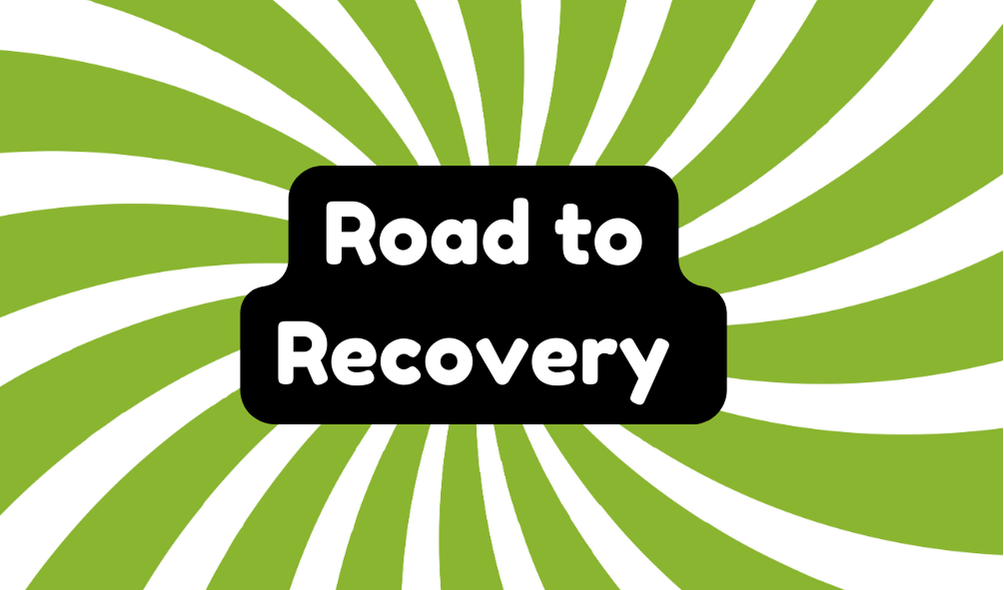The "road to recovery" represents the complex journey of healing from adversity, which may involve health challenges, addiction, or personal setbacks. Its origins highlight struggles and perseverance, emphasizing not just improvement but a holistic process influenced by psychological aspects. Example sentences reveal different dimensions of recovery, showing it as a gradual experience filled with obstacles. This term still holds relevance as it reflects both personal and communal resilience in a fast-paced world. More insights are just ahead.
Synonyms
Synonyms serve as essential linguistic tools that provide multiple ways to express the concept of recovery. Utilizing varied terms can enrich discussions about the healing journey and facilitate more effective progress tracking. However, embracing synonyms also risks oversimplifying this complex process.
- Healing
- Improving
- Recovering
- Getting better
Understanding the nuances of each term is crucial; for example, "improving" might not fully encapsulate the challenges inherent in genuine recovery. As individuals traverse their paths towards wellness, being mindful of language can foster deeper empathy and awareness of their unique struggles, ultimately enhancing communication and understanding.
Example of Sentences
Recovery, often depicted as a hopeful journey, is fraught with its own complexities and challenges. Many individuals describe the healing process using various contexts that illustrate this nuanced experience, showcasing the diverse nature of the recovery journey. Some examples include:
- "Her recovery journey from the surgery has been challenging but rewarding."
- "The team's efforts in economic recovery signal a new beginning."
- "He remains optimistic as he navigates his long recovery from addiction."
- "Evidence of community resilience emerges as they commence on their recovery journey post-disaster."
These statements underline the varied facets involved in the intricate nature of recovery.
Origin
While people often view recovery as a positive transformation, its origin reflects a deeper narrative of struggle and perseverance. The term embodies historical significance, tracing back to contexts where individuals faced immense challenges. Recovery has often been positioned against a backdrop of hardship, illustrating not merely an improvement but a journey marked by psychological impacts. This evolution signifies movement from one state to another, implicating time and resilience. Furthermore, the concept of recovery emphasizes the complexities involved, often revealing the arduous routes one must navigate. Consequently, understanding its origin is essential to comprehending the multifaceted nature of recovery itself.
Collocations
Collocations associated with the concept of recovery reveal important linguistic patterns that help clarify its meaning. These terms illustrate the intricacies of recovery journeys and healing processes, demonstrating that language shapes our understanding of complex experiences.
- "Journey to recovery"
- "Stages of healing"
- "Path of recovery"
- "Emotional recovery process"
Such phrases not only signify the gradual nature of healing but also highlight the challenges individuals face. Understanding these collocations encourages a more nuanced view of recovery, moving beyond simplistic notions. Therefore, they invite a critical examination of both the language and the reality of recovery experiences.
How to Use in Everyday Language
How can effective communication about recovery impact our understanding of personal and communal challenges? Daily usage of the phrase "road to recovery" can frame conversations surrounding healing. Using conversational phrases bridges the gap between personal experience and broader societal issues, encouraging openness.
| Usage Context | Example Phrase |
|---|---|
| Personal Health | "I'm on the road to recovery." |
| Economic Discussions | "Our economy is making strides in recovery." |
| Sports Injuries | "She's focused on her recovery journey." |
| Community Support | "Together, we will find the road to recovery." |
| Emotional Healing | "It's a tough road, but recovery is possible." |
These conversational tools foster understanding and empathy.
Why Is It Still Relevant Today?
The concept of recovery remains essential in today's society, as it underscores both personal and communal resilience in the face of adversity. In an increasingly fast-paced world marked by challenges, individuals commence on their healing journey to reclaim their well-being. The idea of recovery extends beyond mere improvement; it necessitates personal resilience—a crucial trait for overcoming setbacks. Despite societal advances, conversations surrounding recovery often reflect skepticism, revealing lingering doubts about the effectiveness of available support. Nonetheless, acknowledging the ongoing nature of recovery fosters a realistic perspective, reminding individuals that they are not alone in steering through the complexities of their healing journeys.







